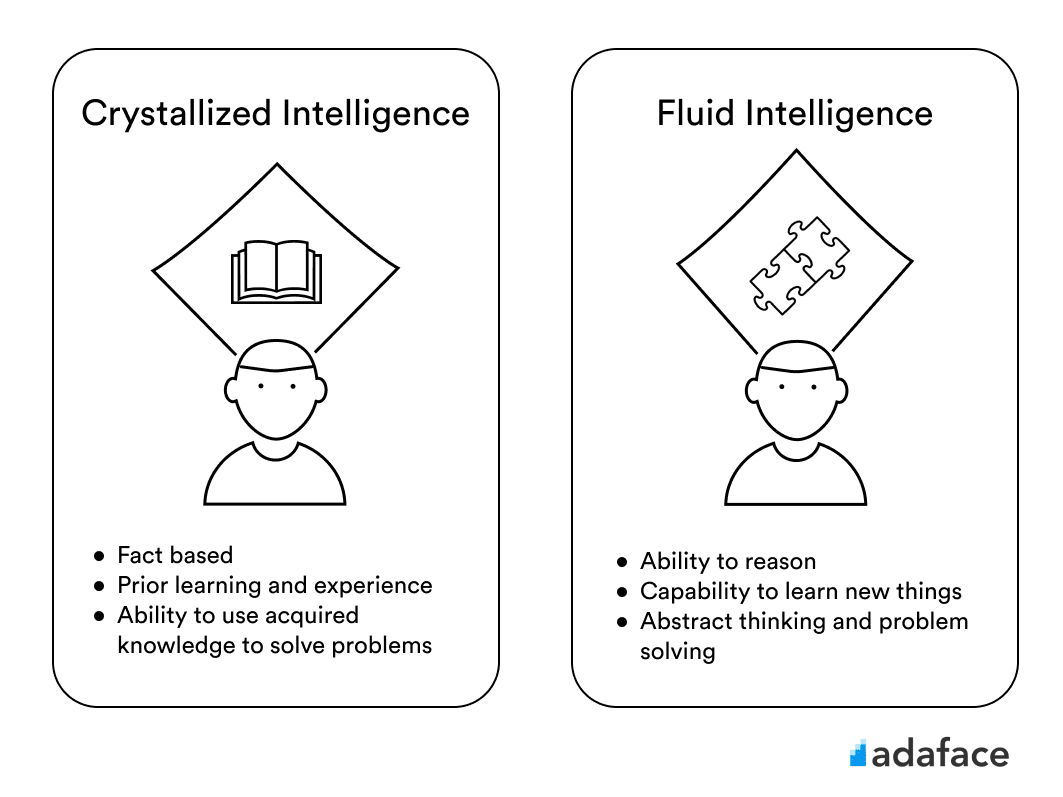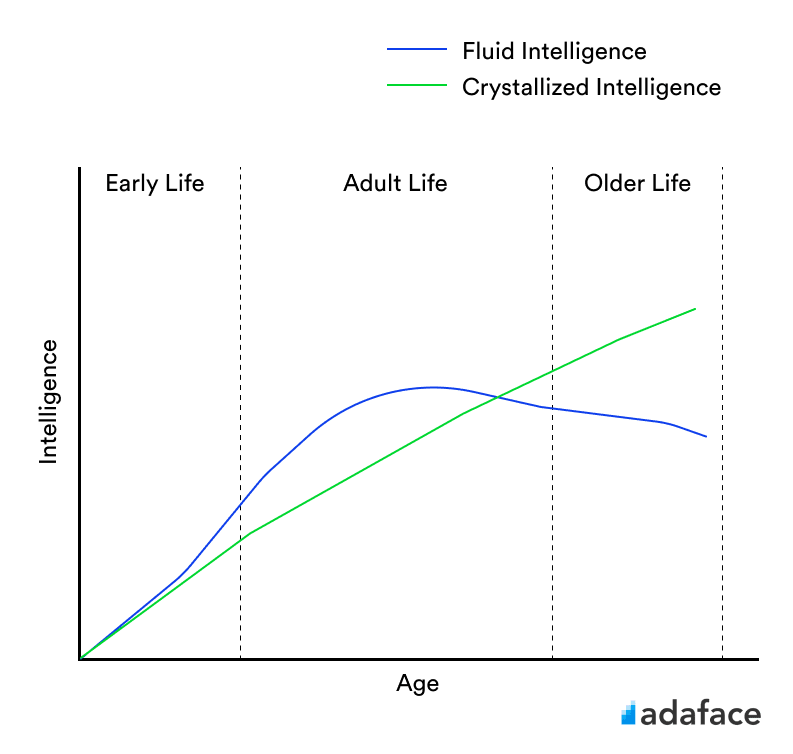Fluid vs Crystallized Intelligence
"The older you get, the wiser you become". Is this true? For the most part, yes, but did you know that we have a type of intelligence that decreases after adulthood? This is what research says about types of intelligence.


Intelligence. When you hear that word, what comes to mind? For me, what comes to mind is this one annoying student who would always claim they knew nothing before every exam, but when the results came out, they were the ones who had outperformed the whole class. Is that intelligence?
If it is, I’m probably the least intelligent person there is.
Luckily for a lot of us, that’s not what intelligence is. Intelligence isn’t just about knowing various subjects. It also involves your capability to think on your feet and solve problems. Knowledge about various topics, quick thinking, and problem-solving; these are factors which belong to two facets of intelligence - fluid and crystallized intelligence.
What is Fluid Intelligence?
Fluid Intelligence is defined as the ability to maneuver unique situations and solve new problems. You do this not by depending on your previous experience or knowledge, but, by thinking on your feet and using logic to maneuver through these situations.
Fluid Intelligence Examples
This is the creative part of you which exists. For example:
- When you start to paint for the first time or play any instrument, these are situations you have never encountered before, which means you do not depend on any prior experience when you perform these tasks.
- Do you remember when you were solving puzzles as a kid? You had no idea what the outcome of the puzzle would lead to, but you would put together the pieces based on logic and reasoning. This is you using your fluid intelligence.
However, once you put together about 70-80% of the puzzle, you may recognize it as an image of an elephant. Now you can piece it together much faster because you already know what an elephant looks like, so you have a vague idea of which piece goes where. This gives us a segue to the other type of intelligence in you.
What is Crystallized Intelligence?
Crystallized Intelligence refers to the knowledge which you have accrued throughout the years of your life. These are learnings from your education, past experiences and various other learnings which accumulate to form your crystallized intelligence.
This type of intelligence is mainly based on facts and experiences. As you grow older, you gain more experience and knowledge, and your crystallized intelligence grows along with it.
Crystallized Intelligence Examples
- You are using crystallized intelligence right now. You might have learnt the English language as a kid, and you now depend on your past knowledge of what you learnt to read this article.
- Anytime you perform a task that depends on your previous experience, you use crystallized intelligence. Whether it is reading or playing basketball, you rely on previous knowledge during each activity to maneuver through the task.

Fluid Intelligence vs Crystallized Intelligence
Your changes in intelligence are analogous to the way your body works over the years of your life.
What that means is this, consider any professional sports player. Depending on which sport, they can probably play until their late 30s or early 40s, beyond which they choose to retire because their body cannot handle the same load.
Fluid Intelligence is similar to this. It usually increases as you go through adolescence and youth. But when you go through adulthood, which is your 30s or early 40s, your fluid intelligence begins to decline progressively.
Crystallized Intelligence, on the other hand, is the opposite. Since it depends on your previous knowledge and experience, it increases as you grow older and obtain more experience.

Testing Fluid and Crystallized Intelligence
Well, this is all well and good, but why are we at Adaface - a hiring platform, talking about types of intelligence? 🤔
The objective is to help you, the hiring managers, understand what skills to test for when providing your candidates with pre-employment assessments.
Are you looking for employees who are capable of thinking quick on their feet and are excellent at problem-solving? Or, are you looking for ones with a lot of prior experience and knowledge in a particular field and requiring them to use that knowledge to accomplish everyday tasks?
If the former is what you are looking for, you need to prioritize fluid intelligence; else, you need to give importance to crystallized intelligence.
Testing crystallized intelligence is straightforward. Hiring for a Django developer role? Give them a test which tests on-the-job skills through Django. With this, you test their intelligence in a field where they must apply their prior knowledge and experience.
However, testing fluid intelligence is not easy. You can use aptitude tests, but the issue with most aptitude tests is that they have googleable questions. Your candidate can google “aptitude test”, and a bunch of questions appear. If they practice those for a week, they become better at it, and similar questions end up on the test you provide them as a part of your hiring process. They end up clearing it because they practiced and had prior experience.
But by now, we know that that is not fluid intelligence in play but crystallized intelligence.
If you want to test for fluid intelligence, you have to provide them with novel questions and ones they have not encountered before.
How do you do it? By providing them with aptitude tests with non-googleable questions while testing on-the-job problem-solving skills. When you give candidates questions they have not seen before, they use their fluid intelligence to solve problems. With this you can accurately predict how likely they are to think quickly and solve new problems on the job.
On a Final Note
Every individual has both the fluid and crystallized parts of intelligence within them. For a few, the creative aspect of intelligence dominates; for a few others, their intelligence is due to rich experiences and learnings.
Based on the job demands, you get to prioritize one over the other and pick the right candidate for your organization.

